#developmental trauma
Text
call me oversensitive or something if you want but personally as a survivor of developmental trauma that is ingrained into my sense of being in such foundational ways that i'll probably never be able to fully rid myself of its effects (and that's okay) i'd rather see more messaging along the lines of "you'll someday reach a point where you realize there is so much more to who you are as a person than your trauma/suffering" as opposed to "stop making your trauma/suffering apart of your identity that's not healthy" because, to me, the latter almost frames it as if not being able to just snap yourself out of that mindset (or if you're still being regularly subject to more trauma) is some kind of personal failing, whereas the latter seems more like the kind of compassionate sentiment that people like me need.
it's hard not to identify with suffering when that's all you've ever been given to work with. it's hard not to identify with suffering when you're still being put through it due to circumstances outside of your control. it's hard when the former happens and then the latter happens too to reinforce it. idk i really dislike the way online recovery culture often seems to implicitly moralize aspects of "recovery" like this, or acts as if recovery is solely about one's personal choices rather than other factors (like whether one is even in a safe and stable enough life circumstance) playing a role that's just as big, if not bigger.
2K notes
·
View notes
Text

118 notes
·
View notes
Text
Abusive parents fail to nurture a child then blame the child when they show signs of not being nurtured.
Abusive parents fail to build up a child then blame the child when they show signs of not being “capable”.
Abusive parents fail to give a child support or resources to help them with their emotions then shame the child when they need help with their emotions.
Abusive parents break down a child’s confidence, strength, spark then shame them when they struggle to face life’s challenges. They would rather have a scared, wounded child to control and use than see their own child happy and successful. To face life’s challenges a child must have a foundation of unconditional love and acceptance, they must know not only their value but their strength. A child needs support. Healing from abuse involves not only processing the horrific things that were said and done to me, but recognizing all the things I needed that I didn’t get. Realizing that it really wasn’t my fault. That I wasn’t somehow flawed as I was made to believe. That I don’t deserve abuse. That I deserved support then and I deserve support now. That I deserved understanding then and I deserve understanding now.
I was not unconditionally loved and accepted. I was not safe. My energy was more focused on safety than anything else. I do not blame myself for struggling now to face life’s challenges, let alone have dreams and aspirations for a bright future. I give myself the grace, patience, acceptance, compassion and nurturing I should’ve gotten as a child. I do not shame myself for where I’m at. I do not shame myself for struggling to connect with other people when I never had a healthy/safe/secure attachment as a child, instead getting close to people only led to terror. I honor my pace and don’t rush my heart or my body. I do not shame myself for needing more help than others who had a head start I didn’t have. I do not blame my body for struggling with basic things others are able to do who have not endured all I have endured. My body, my mind, my heart, my spirit have done all they were able to do to carry me to this point. I am grateful to them for all they have done to carry me to this point. I honor and respect them. I honor and respect all parts of me.
I refuse to perpetuate the generational cycle of shaming myself. I know that the horrific ways my parents treated me is how they treat their inner child, and why they still live shameful, miserable lives to this day. The cycle stops with me.
#inner child healing#reparenting#narcissistic abuse#shame programming#undoing dysfunctional family programming#child abuse#childhood trauma#developmental trauma
417 notes
·
View notes
Text
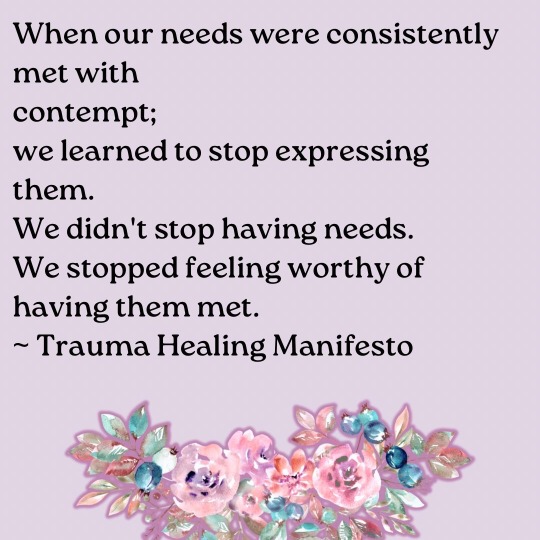
#the recovery manifesto#cptsd recovery#trauma#trauma journal#mental illness#complex ptsd#complex trauma#healing trauma#actually cptsd#dissociation#trauma therapy#mental health#cptsd life#cptsd thoughts#cptsd problems#trauma related#developmental trauma#complex post traumatic stress disorder#dissociative episode#bpd recovery#living with cptsd#cptsd awareness#cptsd warrior#cptsd healing#mental health awareness#digital art#quotes#mental health blog#mental health blogger#trauma blog
59 notes
·
View notes
Text
i actually really like what Siobhan's said about Adaine maybe being aro/ace. She is just a kid, and a traumatized one at that.
I think a lot of people forget that trauma doesn't just impact little kids development, it can very much happen for teens as well. When I was 15/16 I identified as ace (and I do believe sexuality can change and that was the right word for me at the time) but now I don't. I came out as trans and stopped living with my parents and my brain was able to catch up.
Like, I won't ever tell a teen they're wrong about their identity, but I do wish there was more understanding of trauma and teen development, including sexuality.
21 notes
·
View notes
Text
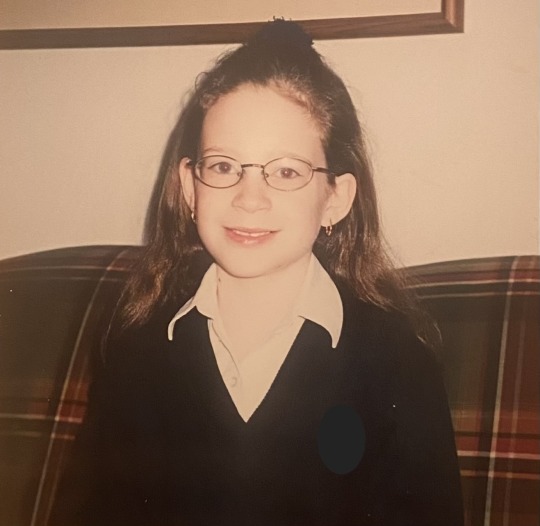
Dug up my memory box I made with T. Pictures of her. Circa 2001. Crooked glasses. Dead eyes. Smile for the camera. Barely.
The fear, the lack of safety, the conditional love, the aloneness, the numbness, the hypervigilance of what is next. What will happen next where she will need to shrink away, become invisible. Shatter till there is nothing left to harm. Gone.
And all those shattered pieces are drowning in her. Her breaking out from the locked imprisonment. To hide in that black throbbing void. To punish until there is nothing left.
A nothing that was never meant to be born.
Fear is sitting in the corner, waiting for the sun to rise, waiting for the Hell to begin.
#cptsd#child abuse#child neglect#developmental trauma#triggers#nothing is safe#dissociation#her#smshellhole#numbness#never stood a chance#you ruined me#i will never heal#angriadm
13 notes
·
View notes
Text
The Warning Signs of Developmental Trauma
1. Deep-Seated Shame
The child may consistently express a sense of being defective in some way- being stupid, ugly, fat, disgusting or permanently flawed in some other way. The verbal cues may be any one of the following: “There is something wrong with me”, “Nothing that I ever do is good enough”, “I am bad”. Indications of such toxic self-hatred may be the precursor to self-harm or even thoughts of suicide.
2. A Sense That There is No Ground and Powerlessness
Children suffering from developmental trauma feel that they are lacking a foundation in this world. Lacking this “ground” contributes to a feeling of powerlessness and even feeling inappropriate inside their own bodies. This often results in feeling vulnerable to becoming easily overwhelmed to feeling like “I’m breaking down”.
3. Becoming Hopeless and Despairing About Life
Children who have experienced chronic emotional trauma develop a sense of hopelessness that they will ever be understood. This despair can lead to losing the sense that life has any meaning. Faith in people and in continuing such a meaningless existence can fade leaving the child seemingly incurably despondent.
4. Hyper-Vigilance and Inexplicable Fear
It is well known that those who suffer trauma live with an activated amygdala, which is experienced as a constant state of arousal. This reinforces the sense of persistent danger lurking. The child who suffers developmental trauma often cannot relax is often jumpy or irritable and may have trouble remaining asleep. Due to the trauma, the child lives with an incessant sense of being threatened, albeit inexplicable.
5. Emotional Regulation Difficulties
The child may be persistently sad or depressed, subject to unpredictable mood swings, inappropriate explosions of anger, or susceptible to triggers by external events exhibiting the inability to control emotional responses.
6. Feeling Isolated and Disconnected
Since developmental trauma often has its roots in attachment trauma- never forming the vital parental bond, the child grows up feeling unwelcome in the world. This results in the chronic difficulty in feeling connected to one’s self and others. This may result in a sense of deep loneliness and isolation. There may be simultaneously both an intense need for contact and fear of such contact.
Source: Why We All Need to be Aware of the 6 Signs of Developmental Trauma
#developmental trauma#childhood emotional neglect#emotional neglect#emotionally absent mother#childhood trauma#cptsd#complex ptsd#attachment trauma#anxiety#depression#emotional dysregulation#mental health
36 notes
·
View notes
Text
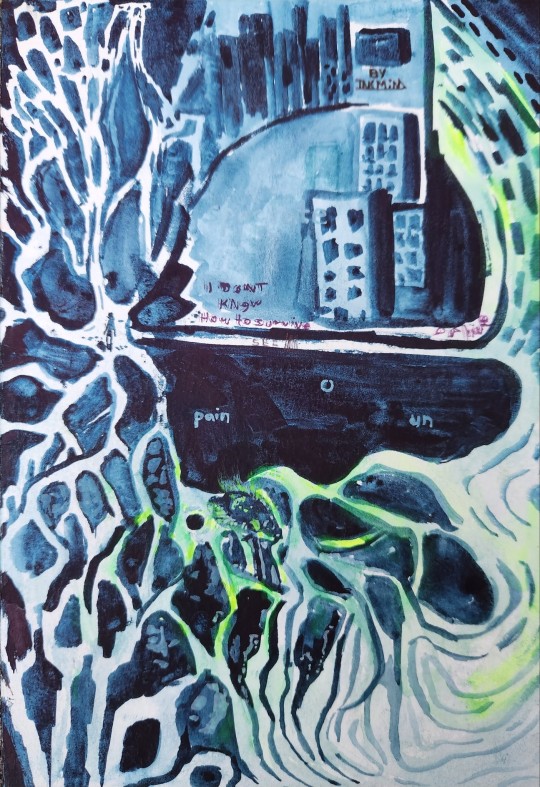
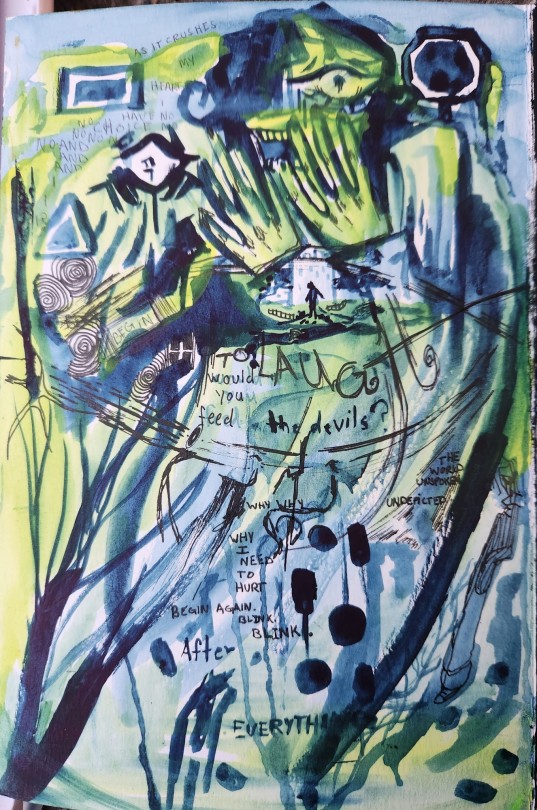

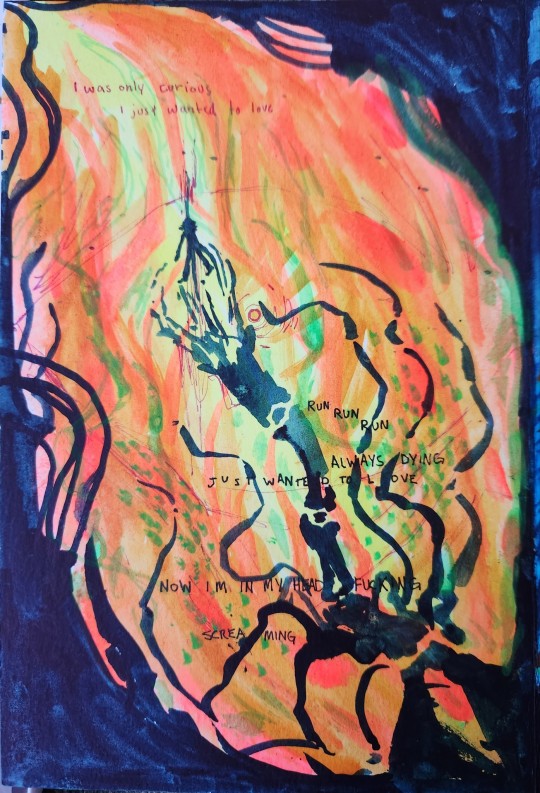
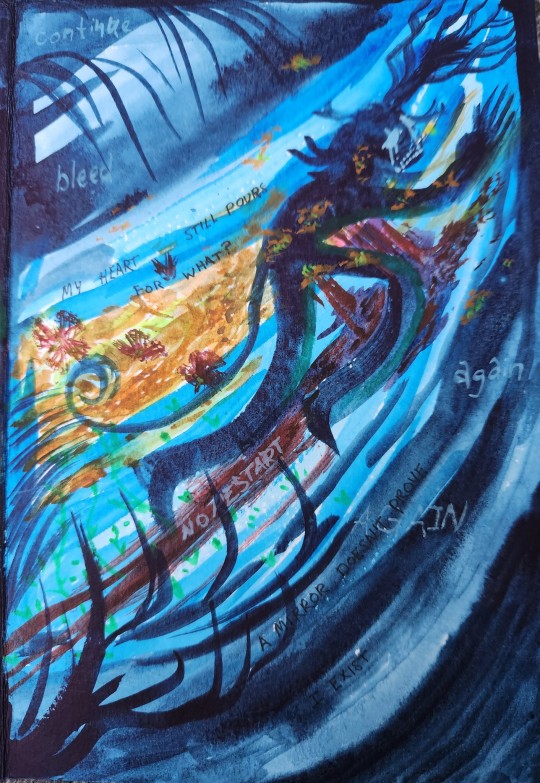

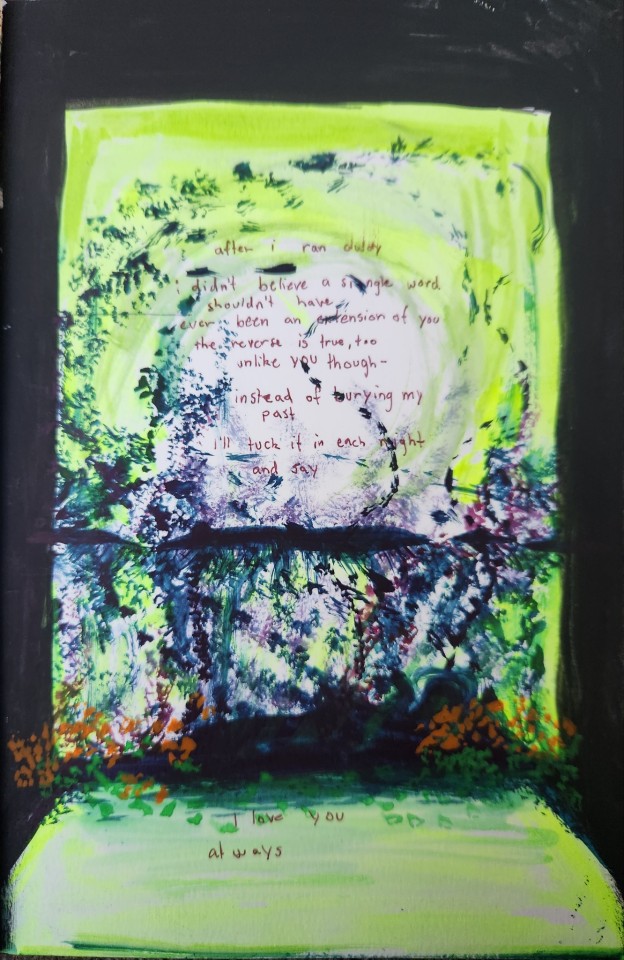
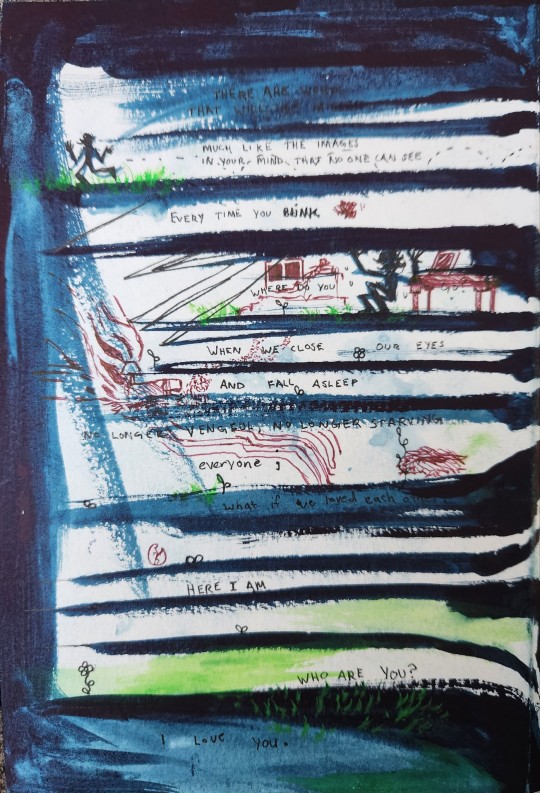
"Blink" [INKMIND 2023)
I've come to notice that adjusting to a life defined by turbulence is an everconstant, indefinite journey. I created a small comic about that.
#watercolor#trauma#healing#self love#abstract#abstract comic#doodles#ptsd#developmental trauma#schizophrenia#DID#also. please stay tuned for a transcript! it will take a bit... theres a lot of hidden writing! :)
22 notes
·
View notes
Text
Invalidating your own trauma
A "nugget" from a recent therapy session that I keep coming back to...
My therapist said that a good way to look at your own trauma is through the lens of someone who didn't experience it that way.
Because our childhood trauma is normal to us, as it's often all we knew as kids as we're often in cultural bubbles. So our friends, cousins, etc often have similar childhoods to our own, so it can feel like that's what almost the whole world is like. But it's not, of course.
They said that when someone had a mom that drank everyday, they often will feel like 'everyones' mom drank too often/too much. And they can point to things like how you can walk into retail stores and find baby onesies that say "I'm the reason mommy needs wine." to show that it is "normal" to drink all the time. So they might feel like having a mother with a drinking problem is something they shouldn't have trauma over. But to me, someone who had a mom who almost never drank, and who I have literally never seen drunk even once - it's SO understandable to me that having your mom rely on drinking as a coping method, or worse - be an outright drunk, could be scary and damaging. They are going to lack emotional presence, you may not feel like they are 'in control' in the ways they should be, you might be afraid of them, you might feel like you have to step up to take care of things when they're drinking. You are likely to think its normal/healthy to use alcohol do deal with big feelings rather than learning healthier methods. Of course that's traumatic!
And for me..."normal" is having a parent who doesn't ever connect with you on a deep emotional level, who regularly is frustrated with you for needing anything from them, it's feeling emotionally alone your whole childhood, not going to anyone as a child when bad things happened to you because you knew the support wasn't there. It's being desperate to be 'good' and a severe people pleaser yet still routinely getting yelled at and otherwise punished for making age-appropriate, human mistakes despite trying your best. It's having to shut down your feelings regularly as you weren't allowed to be angry, hurt or sad in most cases but especially cases that involved your parents' behavior, and being ignored or rejected on the few instances where you were so desperate as to ask for help. It's walking on eggshells to try to avoid angering the adults in your lives because if they got upset, you couldn't feel safe.
I have no idea how common it is. But there are people who grew up with parents who they could go to when they had a problem with a friend at school. Or when they were scared of the dark. Or when they were sexually abused. Or when they started their period for the first time. There are children who grow up being taught how to feel their feelings not shut them down or avoid them. Who don't think twice about taking up space, because they've never had routine experiences that taught them that they needed to be 'small' to be safe. And those people would see my idea of 'normal' childhood and go gosh, of course that is damaging! Maybe even 'I can't imagine having been a child and not feeling like I could turn to my parents when I was scared/hurt/upset! That's wild!" rather than be like me and think 'that's just how it is, I shouldn't be hurt by this.'
#childhood trauma#cptsd#my posts#therapy#childhood emotional abuse#childhood emotional neglect#developmental trauma#insecure attachment#attachment trauma
14 notes
·
View notes
Text

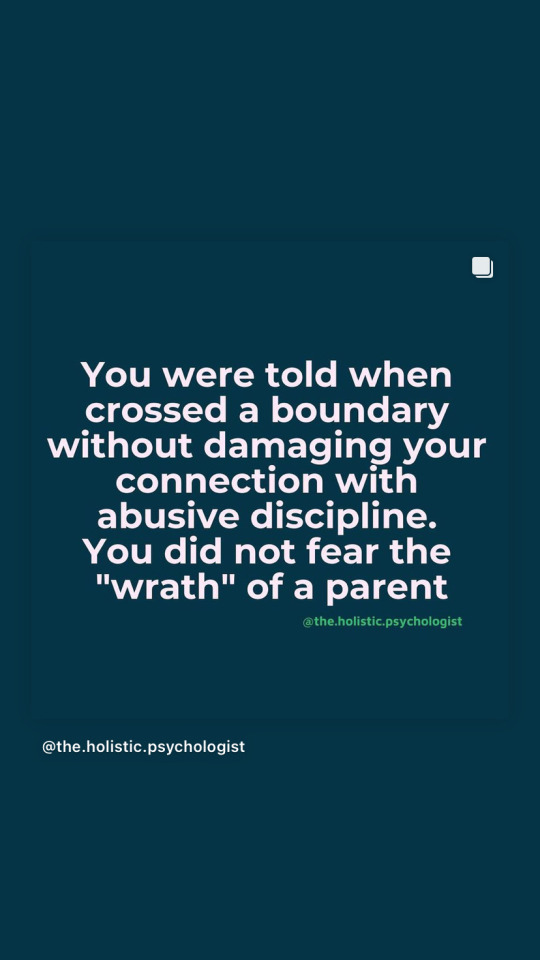
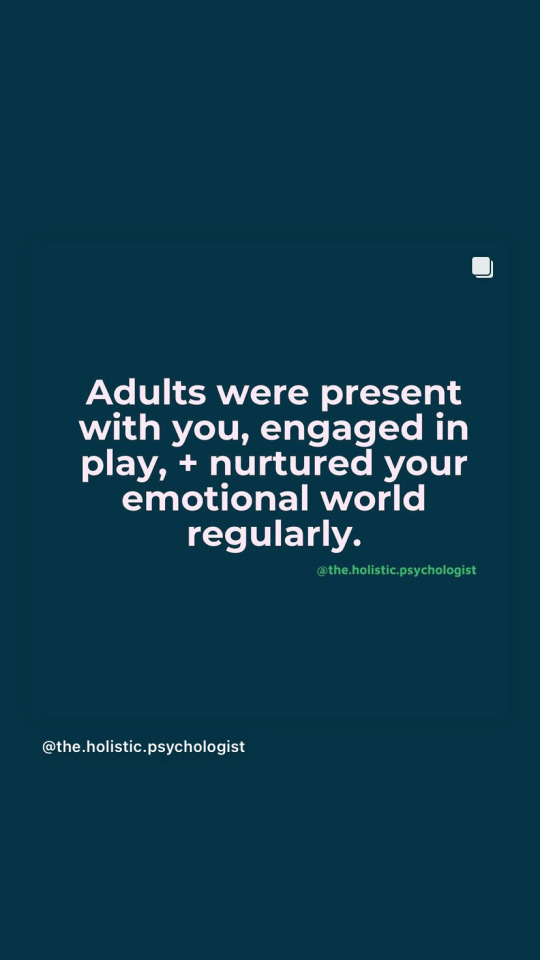



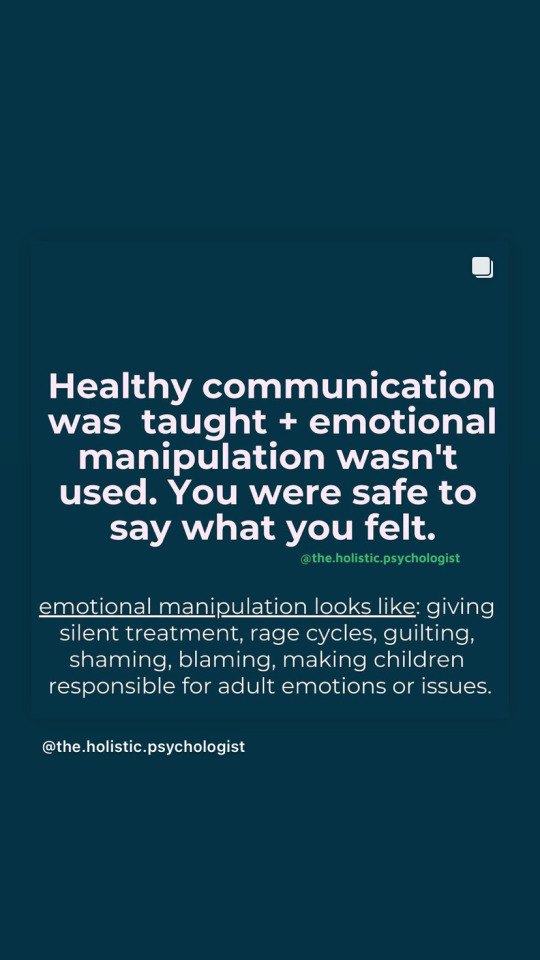

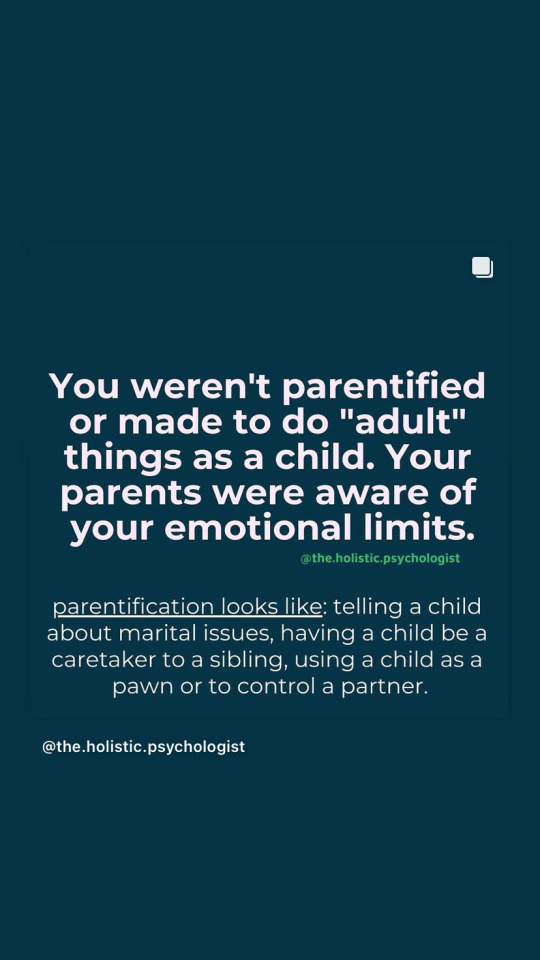

#inner child healing#reparenting#childhood trauma#developmental trauma#attachment trauma#healing from abuse#emotional abuse#narcissistic abuse#psychological abuse#dysfunctional family
169 notes
·
View notes
Text
By developing a contaminated, stigmatized identity, the child victim takes the evil of the abuser into herself and thereby preserves her primary attachments to her parents. Because the inner sense of badness preserves a relationship, it is not readily given up even after the abuse has stopped; rather, it becomes a stable part of the child’s personality structure. Protective workers who intervene in discovered cases of abuse routinely assure child victims that they are not at fault. Just as routinely, the children refuse to be absolved of blame. Similarly, adult survivors who have escaped from the abusive situation continue to view themselves with contempt and to take upon themselves the shame and guilt of their abusers. The profound sense of inner badness becomes the core around which the abused child’s identity is formed, and it persists into adult life.
Judith L. Herman, Trauma and Recovery
28 notes
·
View notes
Text

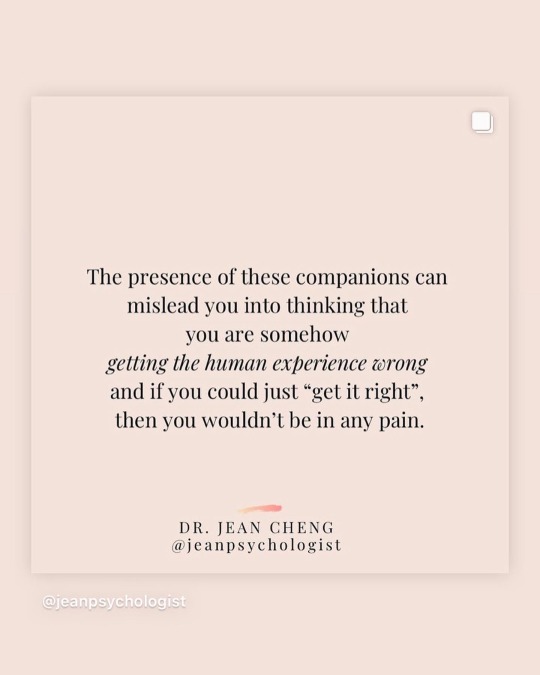
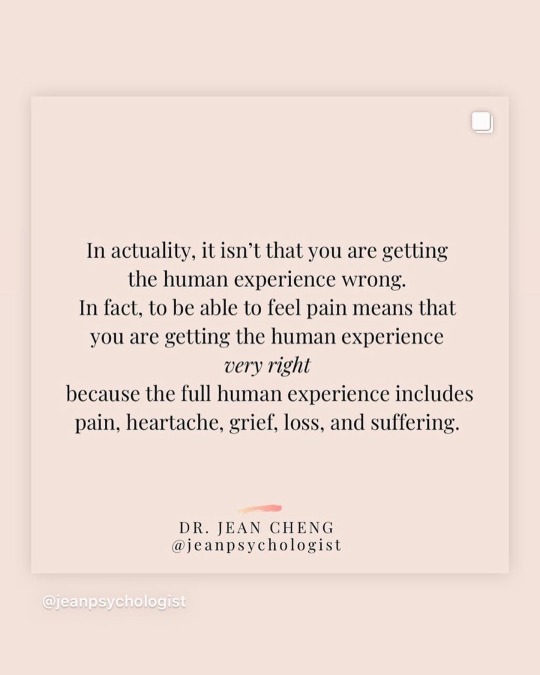
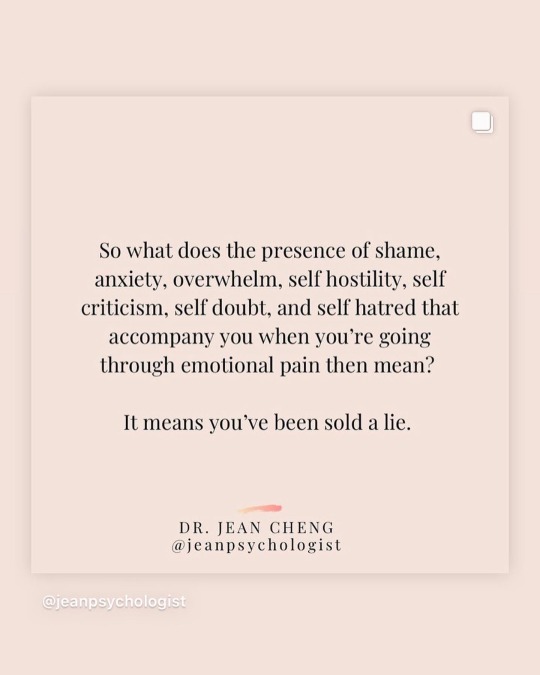
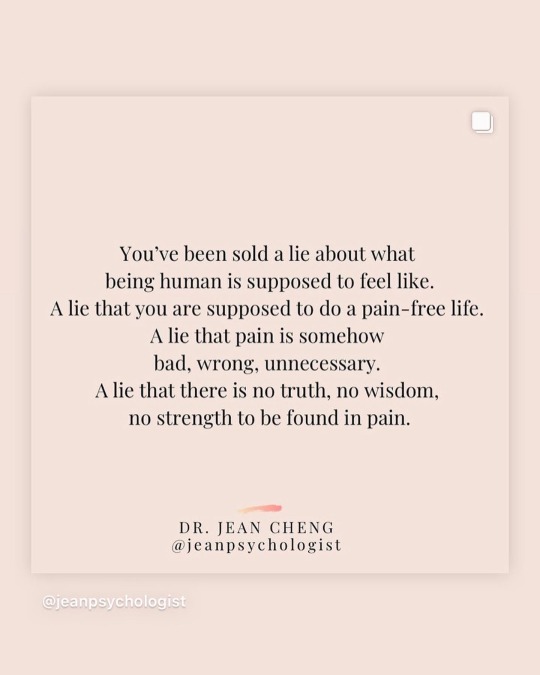




#inner child healing#reparenting#emotional abuse#narcissistic abuse#psychological abuse#childhood trauma#healing from abuse#self love#developmental trauma
313 notes
·
View notes
Text
It's okay to be unpracticed at having friends.
It's okay if it's scary to let people get to know the real you.
It's okay to be afraid of scaring your friends away.
There's no secret. It's just lots of practice. Relationships of every kind are a skill to practice and get better at as time goes on. Even baby steps are progress. Having friends isn't easy because sometimes you need to be real and vulnerable and many of us learned that it's not quite safe to Be. To Exist. And so letting ourselves Be around others is just a skill we didn't learn as kids.
We can do this. One day at a time.
6 notes
·
View notes
Text
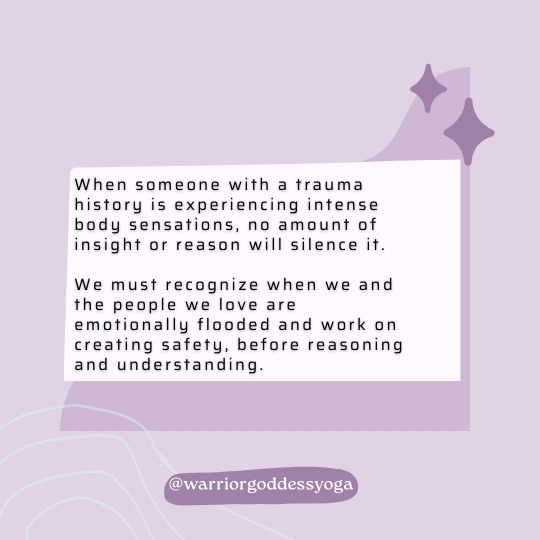
#the recovery manifesto#cptsd recovery#trauma#trauma journal#mental illness#complex ptsd#complex trauma#healing trauma#actually cptsd#dissociation#trauma informed care#trauma informed#trauma awareness#ptsd awareness#cptsd awareness#somatic therapy#complex dissociative disorder#developmental trauma#emotional dysregulation#trauma and adhd#dissociative disorder#bpd#bpd and cptsd#adhd#mental health awareness#mental health advocate#mental illness advocacy#mental illness awareness#trauma advocate#trauma recovery
10 notes
·
View notes
Text
Hate the body tension and headaches that come after being dissociative, especially around her.
Wanting to tear myself apart. Wanting to rip her out of me. Nowhere to go. No way to escape. Trapped in hellhole. In that hallway.
Go, disappear, no one wants you. You are nothing. Nothing.
#cptsd#child abuse#child neglect#developmental trauma#dissociation#her#smshellhole#never will escape#you are nothing#never stood a chance#angriadm
8 notes
·
View notes
Text
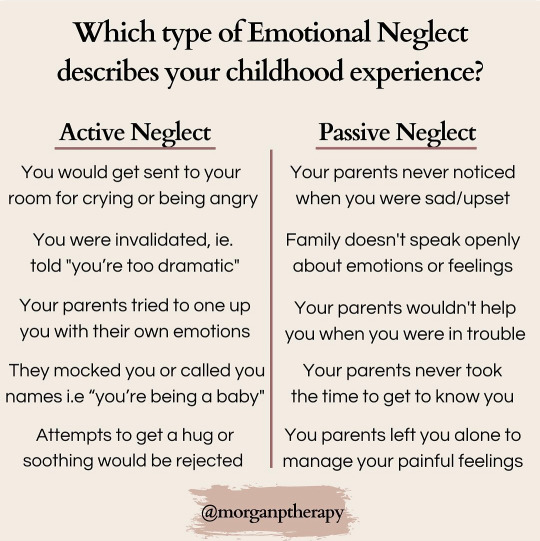
Morgan Pommells
#childhood emotional neglect#emotional neglect#childhood trauma#developmental trauma#complex ptsd#cptsd#mental health#emotionally absent mother
29 notes
·
View notes